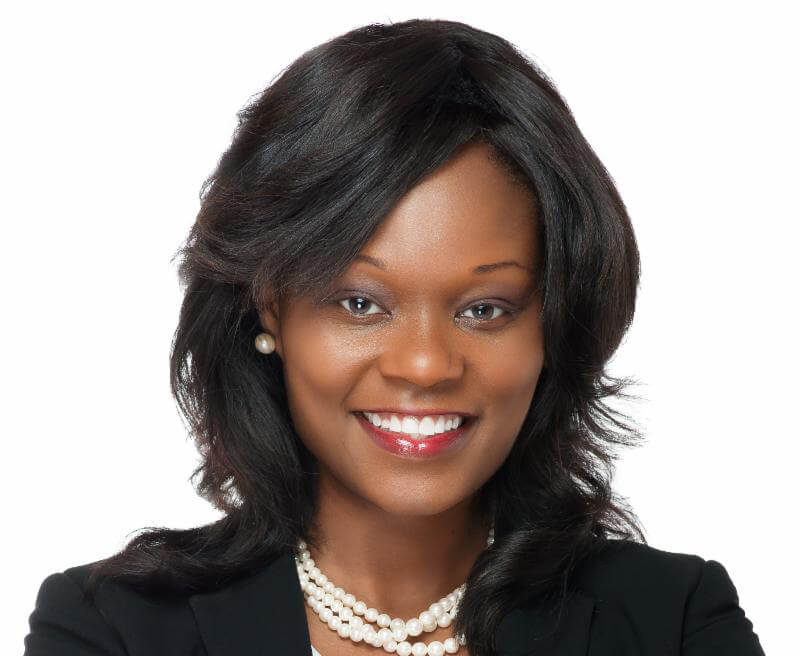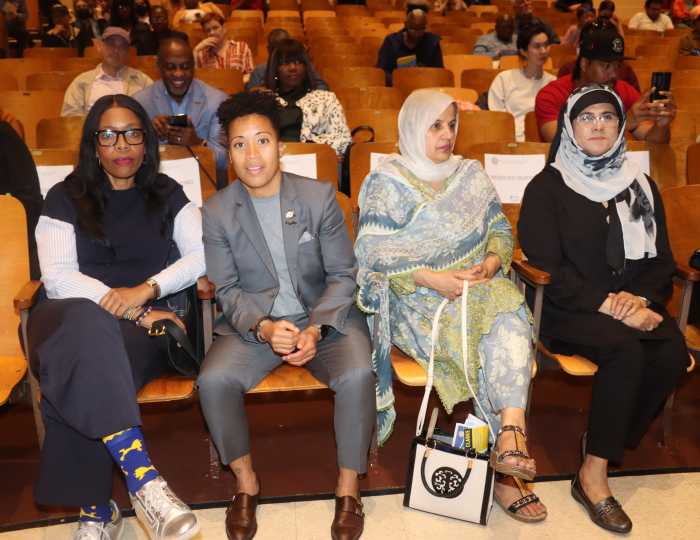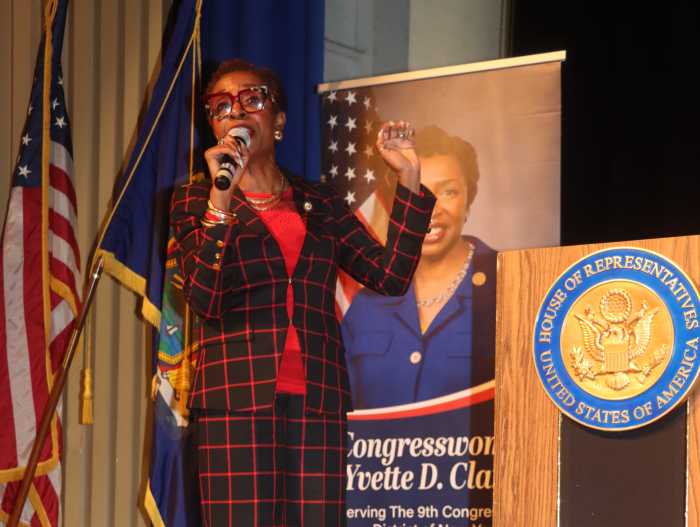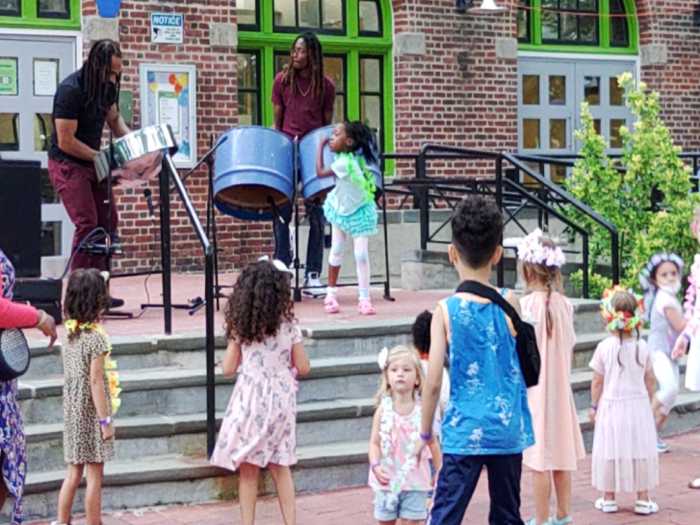A leading Haitian-American legislator in New York on Friday, July 11, welcomed a federal district court ruling blocking President Donald J. Trump’s executive order terminating birthright citizenship from becoming effective anywhere in the country.
On Thursday, Judge Joseph LaPlante of the New Hampshire federal district court issued a preliminary injunction prohibiting the president’s order and certifying a class action lawsuit that includes all affected children.
In his order, the judge issued a seven-day pause to permit an appeal.
“I strongly condemn this dangerous and draconian attempt to strip away birthright citizenship — a fundamental right enshrined in the 14th Amendment – and a cornerstone of our American democracy,” New York State Assembly Member Rodneyse Bichotte-Hermelyn, the daughter of Haitian immigrants, told Caribbean Life.
“It is outrageous that we are once again forced to defend the basic humanity and constitutional protections of immigrant children,” added the chair of the Brooklyn Democratic Party, who represents the 42nd Assembly District in Brooklyn. “Let me be clear: President Trump’s executive order is not just unconstitutional — it is un-American.
“This order targets the very families who have built this nation and keep shaping it, including Brooklyn’s diverse immigrant population,” continued Bichotte Hermelyn. “The President is trying to send a menacing message to the children of immigrants, like myself, that our place in this country is now conditionally based on our race, but we’re a country based on laws, built by immigrants.
“We must remain vigilant, and, while this issue is now fast-tracked to the Supreme Court, it underscores the urgency for Congress to take legislative action to protect birthright citizenship once and for all,” she said. “We cannot allow political fear-mongering to dismantle generations of progress and democracy.”
Bichotte Hermelyn added, ” In New York and across the country, we will fight for every child’s right to belong, and we will remain a welcoming beacon and home for immigrants.”
The San Diego, CA-based Haitian Bridge Alliance (HBA) last week “forcefully” condemned the United States Supreme Court’s decision in partially staying preliminary injunctions on President Donald J. Trump’s birthright citizenship executive order for Caribbean and other immigrants, sending the issue back to lower courts for further action.
In a 6-3 decision, the Supreme Court of the United States (SCOTUS) sided with President Trump in Trump v. CASA, granting his request to narrow the multiple nationwide injunctions that had blocked his Executive Order to end birthright citizenship.
Guerline Jozef, HBA’s executive director, told Caribbean Life that the Supreme Court’s decision that limits nationwide injunctions “clears a dangerous path for the Trump administration’s attacks on birthright citizenship to proceed in large parts of the country.
“Although procedural, the ruling did not address the core constitutional question under the 14th Amendment, instead creating immediate legal chaos and fear nationwide,” she said.
“By restricting federal courts from issuing broad injunctions beyond individual plaintiffs, the court has effectively dismantled crucial protections and created a patchwork system where a child’s right to citizenship now depends on location and local politics,” added Jozef, stating that about 150,000 babies are born in the US each year to immigrant parents, many of them Haitian, “who rely on birthright citizenship to secure their children’s futures.
“This procedural dodge has plunged Haitian babies — born on US soil — into an existential identity crisis,” she continued. “A child’s right to citizenship should not hinge on geography or litigation timing. We are facing a constitutional crisis, not a legal technicality. Haitian families deserve clarity, protection, and dignity — not chaos created by political gamesmanship.”
Jozef noted that the court did not decide whether the 14th Amendment, which has guaranteed birthright citizenship since 1868 and was affirmed in United States v. Wong Kim Ark (1898), protects these children.
“That fundamental issue remains pending and threatens to escalate this humanitarian and constitutional crisis,” she warned.
Therefore, Jozef called on the US Congress to pass federal legislation reaffirming unconditional birthright citizenship under the 14th Amendment.
She also called on State governments to challenge the executive order in federal courts to maintain safeguards for all children.
Additionally, Jozef urged human rights groups to launch “coordinated legal challenges, provide rapid-response legal aid, and mobilize communities to defend vulnerable families.”
Caribbean immigration advocates and legislators have also condemned the Supreme Court’s decision.
“By narrowing nationwide injunctions, the court has opened the door for Trump to advance his dangerous and unconstitutional attempt to end birthright citizenship –a right clearly guaranteed by the 14th Amendment for more than 150 years,” Murad Awawdeh, president and CEO of the New York Immigration Coalition (NYIC), an umbrella coalition of over 200 immigrant and refugee groups in New York, told Caribbean Life.
“This same Supreme Court never thought to say that the many national injunctions and stays it upheld against the Biden administration were outside the judiciary’s power to enact,” he added.
Awawdeh said the court’s “ruling shows that the Supreme Court now operates as an extension of Donald Trump’s political will, empowering Trump to escalate his anti-immigrant agenda with fewer legal checks and threatening the safety, dignity, and future of millions of Americans.
“Trump has made it clear that he will stop at nothing to tear immigrant families apart and rewrite the very meaning of who gets to belong in this country,“ he said. “We will not stand by as Trump and his enablers undermine our Constitution to try to erase these rights of our communities.”

The Congressional Black Caucus (CBC) – chaired by Caribbean-American U.S. Rep. Yvette D. Clarke, who represents the 9th Congressional District in New York – also condemned the US Supreme Court’s ruling.
“By limiting the federal judiciary’s ability to issue nationwide injunctions against the Trump administration’s extremist and authoritarian policies, the conservative supermajority on the Supreme Court is once again bending the law to serve President Trump instead of defending the Constitution and the American people,“ said CBC in a statement.
“While this ruling makes it harder for courts to fully block the unlawful policies of the Trump administration, the judicial fight to protect birthright citizenship and our fundamental rights will continue,“ CBC vowed. “For more than a century, a cornerstone of our law has been that those born on US soil are American citizens. President Trump’s unlawful attempts to nullify birthright citizenship are in clear violation of the Fourteenth Amendment, which established African Americans as equal citizens under the law.
“President Trump has absolutely no authority to unilaterally write American citizens out of the Constitution, and any challenge to that notion is utterly fanciful,“ it continued.
New York Attorney General Letitia James said the US Supreme Court’s decision “is a profound and disappointing setback for the families facing tremendous uncertainty and danger, for the millions of people who rely on the courts to protect their constitutional rights, and for the fundamental rule of law.
“Every child born on US soil is a citizen of this country, no matter which state they are born in,“ she said. “This has been the law of the land for more than a century.”
However, James said the case “is not over,“ expressing confidence that the case defending birthright citizenship will ultimately prevail.
“My heart breaks for the families whose lives may be upended by the uncertainty of this decision,“ she said. “My fellow attorneys general and I will continue to defend the Constitution and the common values that unite us.”
On Jan. 21, Attorney General James and 18 other states sued to block the president’s “unconstitutional executive order,” which purported to end birthright citizenship.
On Feb. 13, the court granted the coalition’s motion for a preliminary injunction, which the US Court of Appeals later upheld for the First Circuit.
Last week, the US Supreme Court, the highest court in America, partially stayed the preliminary injunction, sending the issue back to the lower courts to narrow their order.
According to the Washington-based think tank Cato Institute, the 14th Amendment became part of the US Constitution 150 years ago in July 1868.
The institute said the amendment “enshrined our traditional common law practice of granting citizenship to those born in the United States who are subject to its laws — specifically, it guaranteed that the recently freed slaves and their descendants would be citizens.“
The institute also said the 14th Amendment applied to the children of immigrants, including Caribbean immigrants, “as its authors and opponents understood at the time.”
But the Cato Institute noted that Trump’s immigration position paper “famously endorsed an end to birthright citizenship.
























